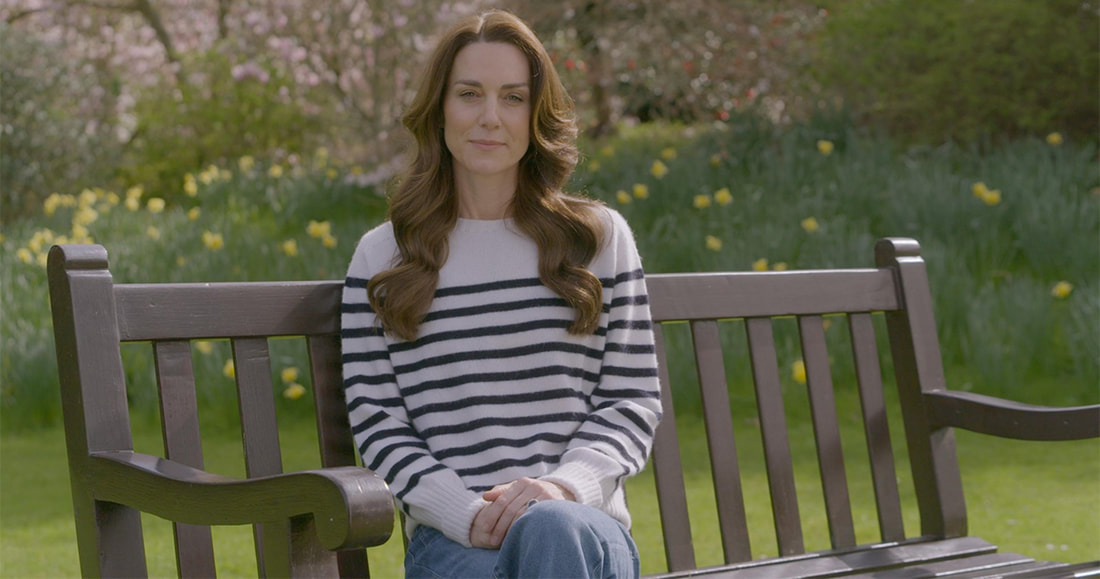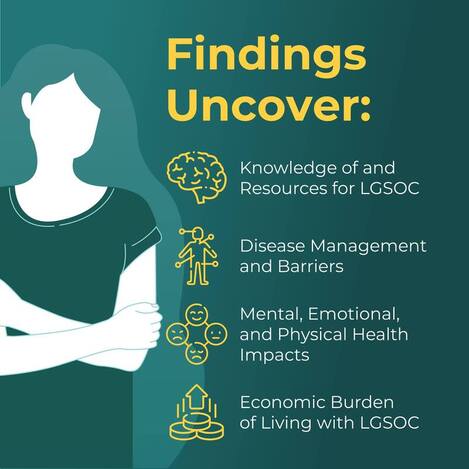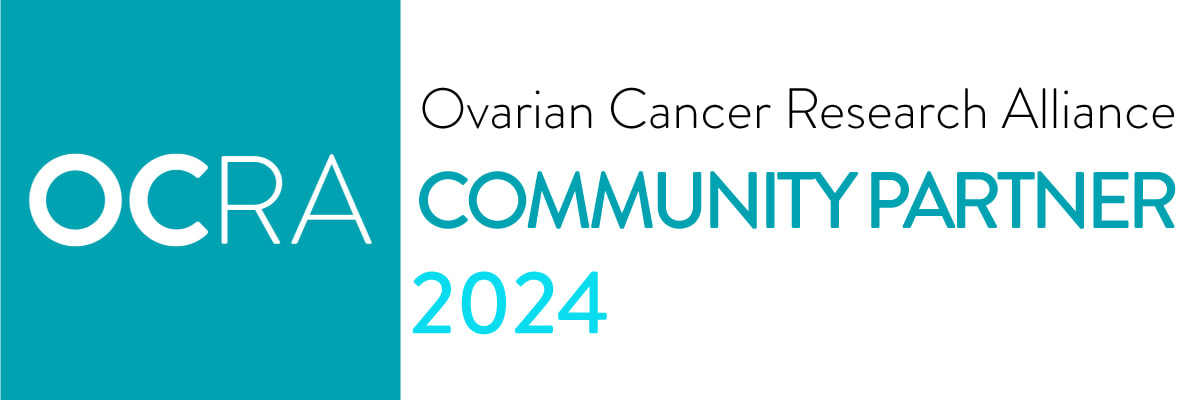|
“The surgery was successful and it is expected that she will remain in hospital for ten to fourteen days, before returning home to continue her recovery. Based on the current medical advice, she is unlikely to return to public duties until after Easter,” read the statement from Kensington Palace on January 17, 2024. Fourteen days in the hospital is a long time. My abdominal surgery for extensive stage IV ovarian cancer in September 2019 kept me in the hospital for much less. Then I remember being told the morning of my surgery I might be there for two weeks with up to five days in the ICU. Low-grade serous ovarian cancer covered most of the organs in my abdomen and my 9.5-hour surgery went better than expected. Five days later, I was home. I wondered, "Does the Princess of Wales have ovarian cancer too?" I hoped I was wrong and put the news out of my mind. King Charles was also in the hospital at the same time for a procedure for an enlarged prostate and the official announcement of his cancer diagnosis quickly followed. My dad was diagnosed with prostate cancer about two years after my diagnosis, my heart went out to the Royal family. I knew what they were going through. Then in March, a photo for Mother’s Day was released. I was glad to see that the Princess of Wales, Kate Middleton, was smiling with her children and looking well. But when news broke that the photo was heavily edited, my curiosity was piqued. Was she even in the picture? I found myself in the same rabbit hole as many Americans, watching internet videos and wondering where is Kate Middleton? For two weeks rumors ran wild, ranging from she’s hiding in a secret world beyond an ice wall in Antarctica to a mental breakdown because of an affair. The video of her holding grocery bags at a market didn’t add up. I couldn’t carry heavy bags for six months following my surgery, how could she be out shopping so soon? Was it a lookalike? Statements from the palace were vague at best, and deliberately misleading at worst, and public trust was quickly eroding. As a marketing communications professional, I wondered how was one of the longest-standing and most revered institutions in the world botching this PR situation so much? Then a video statement from the Princess at her home in England was released and the world found out the people’s Princess of the twenty-first century did indeed have cancer. The young mother of three was undergoing preventative chemotherapy and was saying she would be okay. Doctors from my hospital were on the news describing what they believed she was going through, and one of guesses was that she may have ovarian cancer. (We do not know what type of cancer she has at this time, and several types could impact the abdominal region. Ovarian cancer symptoms are notoriously hard to detect). I was flooded with memories from 2019 and 2020. A whirlwind surgery, a definitive cancer diagnosis, six chemotherapy treatments, the start of lifelong medication protocols, and cycles of imaging. My first encounter with depression and anxiety, running like a stream through my everyday. While I would never wish my experience on anyone, I found myself hoping that she had the same disease as me. What a difference a woman of her status could make for awareness, funding, improving our chances! I also felt a sense of validation. If a woman with infinite resources could have cancer, anyone can have cancer. It’s not our fault. I saw a post that said the King has been in constant, close contact with the Princess. She’s truly not alone. While my dad's disease was not nearly as advanced as mine and therefore more curable, those early months of his treatment brought us closer than ever. I had someone to go through this with and I wasn’t alone. In recent years, preventative screening for several cancers has been recommended to start at younger ages. Over the last five years the chances of having cancer in your lifetime has changed from 1 in 3, to now 1 in 2. While I wish no one had to hear the words “you have cancer,” the fact is many of us will. And hopefully two of the most senior royals in the world hearing those words within weeks of each other will bring more awareness and funding. Because of her young age, if she does have ovarian cancer there is a chance it’s low-grade serous ovarian cancer, rare form of the disease that disproportionately impacts younger women like me. That’s why I volunteer with STAAR Ovarian Cancer Foundation, the only US-based charity dedicated to funding LGSOC research. The recent announcement regarding the Princess of Wales's health has brought forth a flood of emotions and reflections, not just for me, but for many who have faced the challenges of cancer. While I initially speculated about the nature of her condition, the confirmation of her diagnosis serves as a reminder that cancer does not discriminate based on status or resources. It is a universal battle that requires unity, awareness, and funding for research. As we navigate through our own journeys, whether as patients or supporters, let us continue to advocate for early screening, research advancements, and compassionate care for all those affected by this disease. May the shared experiences of individuals, regardless of royal titles or societal standings, ignite a collective effort towards a future free from the fear of cancer. AuthorMorgan Gaynor is STAAR Ovarian Cancer Board Secretary. She was diagnosed with stage IV LGSOC in September 2019.
4 Comments
When I was diagnosed with ovarian cancer at 44, I knew a lot of people my age who’d had breast cancer, but none who had ovarian cancer. It seemed like a disease that affected mostly older women. I heard the term “low-grade serous” for the first time after surgery. Not only does this rare cancer affect people at a younger age, but the cells are slower growing that most other ovarian cancers, which likely explained why chemotherapy had failed to shrink my tumors. I’m not the only low-grader who’d never heard of LGSOC before being diagnosed with it. Last year, STAAR partnered with Verastem Oncology, Cure Our Ovarian Cancer and World Ovarian Cancer Coalition to conduct the first-ever multinational survey of people with low-grade serous ovarian cancer. Of the 186 people who responded, 99% had never heard of it before finding out they had it. And even after having the disease, 40% still didn’t know that LGSOC is NOT a less severe form of ovarian cancer. Because low-grade cancer cells are completely different from high-grade cells, they don’t respond to the same treatments. And because it’s less common, there’s less research and no specialized treatments. The data from this survey is essential to improving understanding of the disease, so that treatments can be developed with low-graders’ specific needs in mind. Other key findings
These results were no surprise to me. It’s validating to know that I’m not alone in what I’ve been going through. Most low-graders see the need for increased awareness, with
*Symptoms include bloating, feeling full quickly, fatigue, indigestion, menstrual irregularities, changes in bowel habits and painful intercourse. Learn more at our symptom checker. Where do we go from here? 88% of respondents agreed that LGSOC needs more attention as a distinct disease from other ovarian cancers. The data from this survey, combined with the results of the Voices of LGSOC meeting STAAR hosted last year for the US Food and Drug Administration, can influence future research into treatments to improve outcomes for LGSOC. They already have. Earlier this month, the FDA designated a treatment being developed by Verastem as an orphan drug. This is a beacon of hope because orphan drug designations lead to incentives to pharmaceutical companies, facilitate the development of targeted therapies, expedite the regulatory approval process, and enhance patient access to innovative treatments. As the only nonprofit in the US dedicated to LGSOC, STAAR Ovarian Cancer Foundation is at the center of these advances. Sign up for our email list to join the effort. AuthorKari Neumeyer is STAAR Vice Chair—Marketing & Communications. She was diagnosed with LGSOC in 2020. |
ArchivesCategories |




 RSS Feed
RSS Feed

